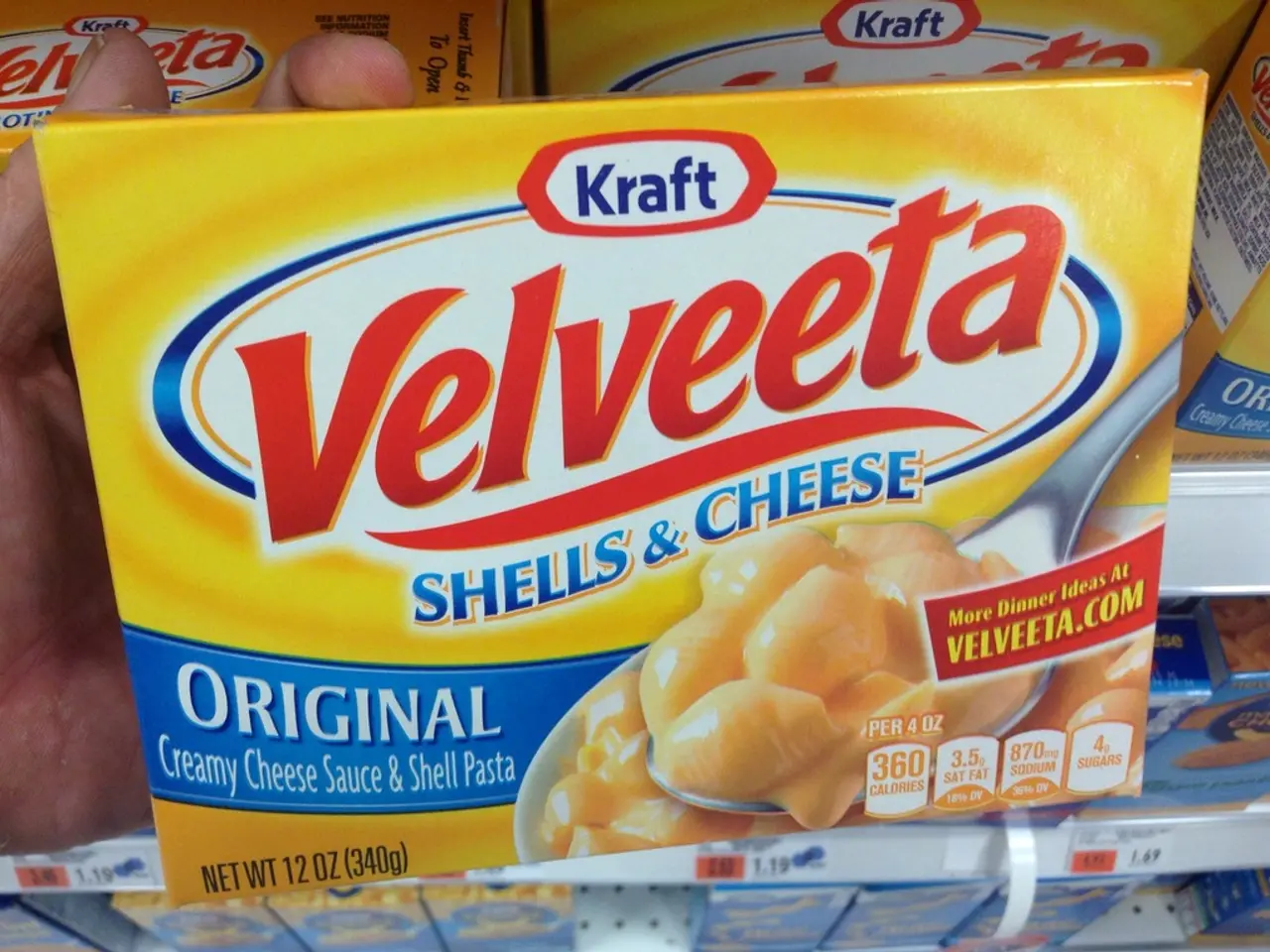Texas confronts Kellogg's over the removal of harmful dyes in their cereals, a decision that Kellogg's has agreed to comply with.
In a significant move towards healthier food options, Kellogg's has agreed to remove artificial food colourings from its entire line of cereals across the United States. The company has signed a legally binding agreement with the Texas Attorney General's office, committing to eliminate petroleum-based food colourings by the end of 2027 [1][2][3].
The agreement, which represents a milestone in the movement to remove toxic dyes from foods, covers the removal of all FD&C colours from Kellogg's cereals. The changes will be implemented in phases:
- By the 2026-27 school year, cereals served in schools will no longer include FD&C colours [2][5].
- From January 2026, no new products will be launched with FD&C colours [2][5].
- By the end of 2027, all FD&C colours will be removed from the remaining products [1][2][5].
This marks the first time a major food manufacturer has signed a legally binding agreement to remove artificial dyes from its products, while other companies have made verbal commitments [3][4]. However, Kellogg's has not specified which toxic dyes it will remove from its cereals.
Texas Attorney General Ken Paxton is proud to announce this agreement, which was signed following a Civil Investigative Demand (CID) issued by his office in February and formally announced in April. When one state regulates a consumer product, manufacturers typically apply the modification nationwide, although it is unclear if this will be the case for Kellogg's [6].
Kellogg's cereals have been an important part of US consumers' lives for more than a century. The company had previously removed toxic ingredients in Canada and Europe, but not in the United States. Now, Kellogg's has stated that it looks forward to continuing its role in US consumers' lives by offering healthier food options [7].
According to Ken Paxton, Kellogg's has agreed to this change to demonstrate its commitment to helping Americans live healthier lives. The agreement between Kellogg's and Ken Paxton's office is a signed Assurance of Voluntary Compliance (AVC), certifying that Kellogg's is legally agreeing to this change [8].
This agreement is a significant step towards protecting the health of all Americans and sets a precedent for other food manufacturers to follow suit.
References: [1] https://www.kelloggs.com/us/en/about-us/newsroom/press-releases/2021/kellogg-company-announces-commitment-to-remove-artificial-colors-from-us-cereals.html [2] https://www.texasattorneygeneral.gov/news/releases/paxton-announces-agreement-with-kellogg-company-to-permanently-remove-toxic-dyes-from-cereals/ [3] https://www.foodnavigator-usa.com/Article/2021/04/27/Kellogg-signs-agreement-with-Texas-AG-to-remove-toxic-dyes-from-cereals [4] https://www.wsj.com/articles/kelloggs-to-remove-artificial-colors-from-cereals-11619647200 [5] https://www.foodnavigator-usa.com/Article/2021/04/28/Kellogg-to-remove-artificial-colors-from-cereals-by-2027 [6] https://www.foodnavigator-usa.com/Article/2021/04/27/Kellogg-signs-agreement-with-Texas-AG-to-remove-toxic-dyes-from-cereals [7] https://www.kelloggs.com/us/en/about-us/newsroom/press-releases/2021/kellogg-company-announces-commitment-to-remove-artificial-colors-from-us-cereals.html [8] https://www.texasattorneygeneral.gov/news/releases/paxton-announces-agreement-with-kellogg-company-to-permanently-remove-toxic-dyes-from-cereals/
- The move by Kellogg's to remove artificial food colorings from its cereals, following a legally binding agreement, could be a game-changer in the health-and-wellness sector.
- This change in Kellogg's policy and legislation is not limited to the US education system, as the company has also agreed to discontinue the use of FD&C colors in new products from 2026 and completely eliminate them from all products by the end of 2027.
- The agreement between Kellogg's and the Texas Attorney General's office is a significant stride in the general news arena, marking a milestone in the movement to remove toxic dyes from foods.
- Moreover, this step towards science, focusing on nutrition and food-and-drink, could potentially influence political decisions in the health-and-wellness lifestyle sphere, encouraging other manufacturers to adopt similar practices.




